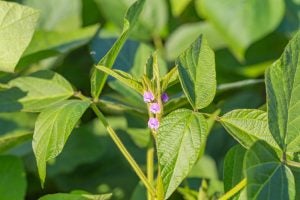The American Soybean Association and 26 soy state affiliates have sent a letter to the EPA asking the administration for help following the ruling.
The court ruled EPA made a procedural error in issuing 2020 dicamba registrations for over-the-top use on dicamba-tolerant soybeans and cotton. Because EPA did not offer a public notice and comment period before issuing the registrations, the court ruled the agency was in violation of the Federal Insecticide, Fungicide, and Rodenticide Act and vacated 2020 registrations for XtendiMax, Enginia, and Tavium.

The ruling appears to affect every state in which the products are registered and thus could impact more than 50 million acres of dicamba-tolerant soybeans and cotton — an area larger than the state of Nebraska. Bayer’s dicamba-resistant varieties are the second most planted soybeans in the U.S.
Josh Gackle, ASA president and soybean farmer from North Dakota, said, “We are clearly disappointed with the court’s dicamba ruling, but more pressing, soybean and other farmers are exceptionally concerned about what this means as we approach 2024 planting season. If the administration does not issue an existing stocks order so we can use the millions of dollars of product already ordered for spring planting, we are in a world of hurt. Not only is there immediate financial loss from not being able to use the product we’ve ordered, but the decision puts tremendous weight on this season’s yield capabilities. If we cannot quickly access dicamba or acquire viable alternatives, we’ll likely have lower production this year from uncontrolled weeds — and that means even greater revenue loss.”
It is unclear whether the ruling will take effect immediately. Most farmers have already placed orders for herbicide and herbicide-tolerant seed. And, there are few alternative products available to cover the capacity of a nationwide switch.
FIFRA gives EPA the authority to issue existing stocks orders for products that are cancelled, which is now a major priority for the soybean industry. ASA also asks for the administration’s support of an appeal of the ruling and help in seeking to stay the ruling from taking effect pending appeal.
In 2023, ASA, its 26 state soy affiliates, and several cotton associations submitted an amicus brief to the District Court of Arizona in this case urging the judge to avoid vacatur. Neither ASA nor the other grower groups are parties to the Arizona case, however.


